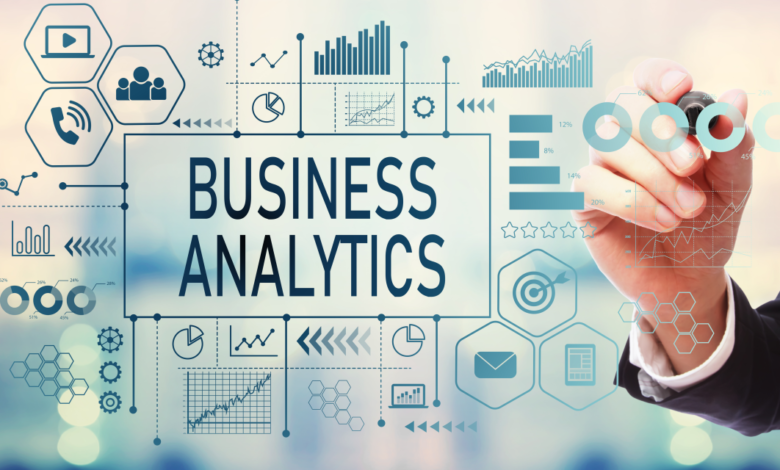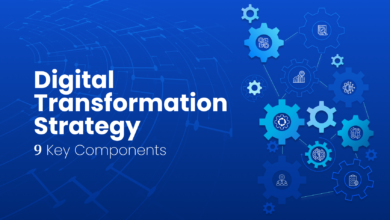Smart Business Analytics: Transforming Decision-Making in 2025

In today’s data-driven world, businesses are increasingly turning to advanced analytics to gain insights and make informed decisions. Smart business analytics leverages powerful tools and technologies to analyze data, predict trends, and improve operational efficiency. By 2025, businesses that incorporate smart business analytics into their decision-making processes will be better positioned for growth, innovation, and competitive advantage. In this article, we will explore what smart business analytics is, its benefits, and how businesses can effectively implement it.
What is Smart Business Analytics?
Smart business analytics refers to the use of advanced data analytics tools, machine learning algorithms, and artificial intelligence (AI) to analyze business data and generate actionable insights. Unlike traditional analytics, which mainly focuses on descriptive analysis, smart analytics uses predictive and prescriptive models to forecast future trends, optimize operations, and guide strategic decisions.
- Key Features of Smart Business Analytics
Smart analytics integrates machine learning, AI, and big data processing to uncover patterns, identify opportunities, and automate decision-making. These features enable businesses to make real-time decisions based on predictive data rather than relying on past trends alone. - How Smart Business Analytics Works
Smart business analytics works by collecting data from various sources, such as customer interactions, sales, and operations. Advanced algorithms process this data to generate insights, forecasts, and recommendations. By utilizing AI and machine learning, businesses can continually improve their decision-making processes, adapting to new data and trends.
Benefits of Smart Business Analytics for Businesses
Smart business analytics offers numerous benefits that can enhance a company’s performance and competitive edge. Here are some of the key advantages:
- Improved Decision-Making
With predictive insights and real-time data, businesses can make informed decisions faster and with greater confidence. Smart analytics helps businesses identify trends, risks, and opportunities before they become apparent through traditional methods. - Increased Operational Efficiency
Smart business analytics helps businesses streamline their operations by identifying inefficiencies and bottlenecks. By automating routine tasks and optimizing workflows, businesses can save time and reduce costs, improving overall productivity. - Enhanced Customer Insights
By analyzing customer data, businesses can gain a deeper understanding of customer behavior, preferences, and buying patterns. This allows businesses to personalize marketing strategies, improve customer service, and deliver better experiences that drive customer loyalty. - Predictive Analytics for Future Planning
Predictive analytics allows businesses to forecast future trends, market demands, and potential risks. This helps businesses stay ahead of the competition, plan for future growth, and allocate resources more effectively. - Data-Driven Innovation
Smart business analytics fosters innovation by providing businesses with the data they need to explore new opportunities. Whether it’s identifying untapped markets, developing new products, or improving existing offerings, data-driven insights drive innovation and growth.

Key Applications of Smart Business Analytics
Smart business analytics can be applied across various industries to improve business outcomes. Some of the key applications include:
- Customer Relationship Management (CRM)
Smart analytics enhances CRM systems by providing businesses with detailed insights into customer behavior. This allows businesses to tailor their marketing and sales strategies to meet the specific needs of individual customers, improving customer satisfaction and retention. - Sales and Marketing Optimization
By analyzing customer data, businesses can optimize sales and marketing strategies, targeting the right audience with personalized offers. Smart business analytics helps businesses identify the most effective channels, pricing strategies, and promotional tactics to maximize revenue. - Financial Forecasting and Budgeting
Smart analytics can provide accurate financial forecasts, helping businesses better manage their budgets and cash flow. By analyzing historical financial data and market trends, businesses can make more informed financial decisions, reducing the risk of financial mismanagement. - Supply Chain Optimization
Smart business analytics helps businesses optimize their supply chains by predicting demand fluctuations, improving inventory management, and identifying potential supply chain disruptions. This ensures that businesses can maintain optimal stock levels, reduce waste, and enhance delivery times. - Human Resource Management
Businesses can leverage smart analytics to improve workforce management, from hiring the right talent to optimizing employee performance. By analyzing employee data, businesses can identify areas for training, predict turnover, and improve employee satisfaction and retention.
Challenges in Implementing Smart Business Analytics
While the benefits of smart business analytics are clear, businesses may face certain challenges when implementing these technologies:
- Data Quality and Integration
Smart business analytics relies on high-quality, integrated data. Many businesses struggle with fragmented data systems, making it difficult to gather, cleanse, and integrate data from various sources. Ensuring data consistency and accuracy is crucial for the success of smart analytics. - High Implementation Costs
The initial investment in smart business analytics tools and technologies can be significant. Businesses must consider the costs of software, hardware, data infrastructure, and skilled personnel when implementing smart analytics solutions. - Data Privacy and Security
As businesses collect and analyze vast amounts of data, ensuring the privacy and security of this data becomes critical. Businesses must implement robust cybersecurity measures to protect sensitive customer information and comply with data privacy regulations. - Skills and Expertise
Successfully implementing smart business analytics requires specialized skills and expertise in data science, machine learning, and AI. Businesses may need to invest in training existing staff or hiring new talent to ensure they can fully leverage the power of smart analytics.
Also Read: Remote Work Technology: Enhancing Productivity and Collaboration in 2025

Conclusion: Leveraging Smart Business Analytics for Success
Smart business analytics is revolutionizing the way businesses operate, offering powerful tools to improve decision-making, increase efficiency, and drive innovation. By leveraging predictive insights, businesses can stay ahead of the competition and adapt to changing market conditions. While challenges exist, the long-term benefits of smart business analytics far outweigh the risks. As businesses continue to embrace data-driven strategies in 2025 and beyond, smart business analytics will play a key role in shaping their future success.




